Other winners include Fliegauf, Petzold.
The docu-feature Caesar Must Die by the veteran Italian directorial duo Paolo and Vittorio Taviani was the surprise winner of this year’s Golden Bear which was handed out with the Berlinale’s other main awards on Saturday evening in the Berlinale Palast.
Handled internationally by Rai Trade, Caesar Must Die is the first Italian film to win the Berlinale’s top honours since 1991 when Marco Ferreri took the Golden Bear home for House of Smiles. It also received the Prize of the Ecumenical Jury
However, during the festival, Germany’s Christian Petzold had been hotly tipped by critics as a favourite to angle the top prize with his GDR melodrama Barbara, and Switzerland’s Ursula Meier had also been regarded as a possible candidate with her Sister about a 12-year-old boy living with his jobless sister near a luxury ski resort.
In the event, the International Jury headed by veteran UK director Mike Leigh gave Petzold a Silver Bear for Best Director - his lead actress Nina Hoss had received a Silver Bear for her performance in his Yella in 2007 – and Meier received a Special Award Silver Bear.
The Silver Bears for acting performances recognised two actors at the beginning of their careers: the Best Actress Silver Bear went to 15-year-old Congolese non-professional actress Rachel Mwanza for her portrayal of a child soldier in Kim Nguyen’s War Witch (Rebelle), while the Silver Bear for Best Actor went to Mikkel Boe Fölsgaard, who has yet to graduate from the Danish National Theatre School, for his role in Nikolaj Arcel’s A Royal Affair.
Moreover, the German film industry had much cause for celebration apart from the Silver Bear awarded to Petzold: German DoP Lutz Reitemeier received the Silver Bear for an outstanding artistic achievement for his cinematography on the Chinese film White Deer Plain, and the International Jury’s other awards – the Jury Grand Prix Silver Bear to Bence Fliegauf’s Just The Wind, Silver Bear for Best Screenplay to A Royal Affair’s director Arcel and his co-screenwriter Rasmus Heisterberg, and the Alfred Bauer Prize for a work of particular innovation for Miguel Gomes’ Tabu - underlined Germany’s continuing importance as an international co-producer since all of these films were made with German co-producers and German public funding.
Meanwhile, the jury for the Best First Feature Award, which included US actor-director Matthew Modine, gave its prize, worth 50,000 Euros, to the Generation Kplus film Kauwboy by Boudewijn Koole, also winner of the Grand Prix of the Deutsches Kinderhilfswerk from the Generation Kplus international jury. (The top Generation Kplus Crystal Bear winner was Arcadia.)
Other prizes awarded by the independent juries included the international critics’ association’s FIPRESCI Awards for films screening in the Competition (Tabu), Panorama (Atomic Age) and Forum (Hemel), respectively; the NETPAC Prize to Mani Haghighi’s Modest Reception; the Dialogue en Perspective Prize to Marten Persiel’s for This Ain’t California about skateboarders in the former East Germany; and the CICAE Prizes for Faouzi Bensaidi’s Panorama film Death For Sale and Yang Yonghi’s Forum title Our Homeland.
The Panorama audience awards went to The Parade and Marina Abramovic The Artist Is Present.
In addition, the 26th Teddy Awards – held in part of the former Tempelhof Airport on Friday evening – saw Ira Sachs’ Keep The Lights On receive the award for Best Feature Film, while Malika-Zouhali Worrall and Katherine Fairfax Wright’s Call Me Kuchu was named Best Documentary Film, and honorary awards were presented to veteran filmmaker Ulrike Ottinger and underground drag artist Mario Montez.
Keeping true to its traditional profile, this year’s Berlinale proved to be one of the most political of recent years with the focus in many films on countries and societies in transition.
However, festival director Dieter Kosslick was well served by a constant flow of international stars arriving in Berlin to provide the necessary glitz and glamour.
Whilst the first weekend was firmly in the grip of Angelina Jolie - some wags called the 62nd edition of the Berlinale “Angelinale“ or “Jolienale“ - and Bollywood legend Shah Rukh Khan, the star powere increased with Meryl Streep in town to pick up the Honorary Golden Bear on Tuesday evening to add to the Berlinale Kamera she had already received from the festival in 1999. And the arrival of Twilight’s Robert Pattinson at the end of the festival gave another surge for the celebrity watchers although his assembled female fans probably had something of a shock when they saw that he had dispensed with his locks for a shaved head for the premiere of Bel Ami on the last Friday evening.
Usually, the Berlinale can proceed for its eleven days almost as if out of time and completely divorced from everything else that is going on in the world. However, this edition was linked - albeit involuntarily - to the growing crisis surrounding alleged wrongdoings of the German President Christian Wulff who eventually resigned from his post on the morning of February 17.
The President’s traditional reception in his official residence Bellevue on the first weekend saw several film industry figures cry off at the last minute claiming prior engagements or other excuses why they did not want to be seen in the same room as Wulff.
As the festival week progressed, there were more revelations about the connections between Wulff in his time as prime-minister of Lower Saxony and the Berlin-based film producer David Groenewold who currently has Helmut Dietl’s satirical comedy Zettl in the cinemas. With Wulff’s immunity lifted after his resignation on Friday, the state prosecutor from Hanover was beginning investigations into the ex-President and Groenewold regarding, among other things, a €4m state guarantee granted by the State of Lower Saxony for Groenwold’s Waterfall Productions in 2007.
Meanwhile, the traditional Berlinale Kinotag today (Sun 19), saw repeat screenings of a selection of Berlinale titles, including the Golden Bear winner. In addition, the Perspektive Deutsches Kino sidebar presented Marcus Schleinzer’s Michael, the winner of last month’s Max Ophüls Prize in Saarbrücken, and Jakob Preuss’ The Other Chelsea, winner in the Best Documentary category at last year’s First Steps Award.
A full list of the winners from the Berlinale’s official and independent juries can be found at www.berlinale.de.





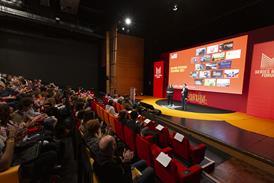
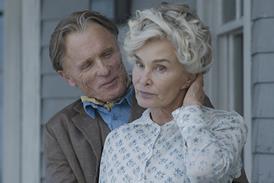





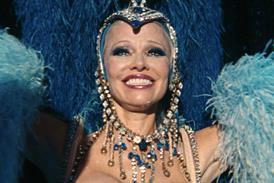

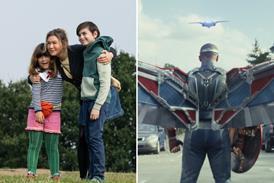

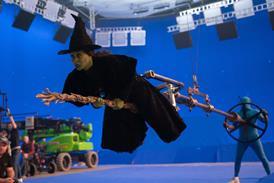
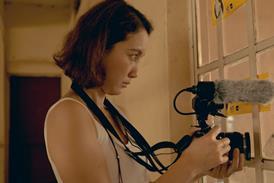




No comments yet